
No one likes to feel bloated. Not only may you feel a little self-conscious if you have a prominent, protruding, bloated belly, but bloating is also physically uncomfortable and can make you feel sluggish. Unfortunately, quite a few foods can cause bloating, and there are additional factors that can make you bloated, so feeling bloated after eating, drinking, or even exercising is rather common.
The good news is that there are certain foods that can reduce bloating to help you relieve the discomfort. Foods that help with bloating do not make you lose fat, but they can reduce inflammation in the gut and reduce fluid retention to help you get rid of any gas or water causing a belly pooch.
Feeling bloated after eating or drinking? Wondering how to get rid of bloating? Keep reading for the best foods to reduce bloating.
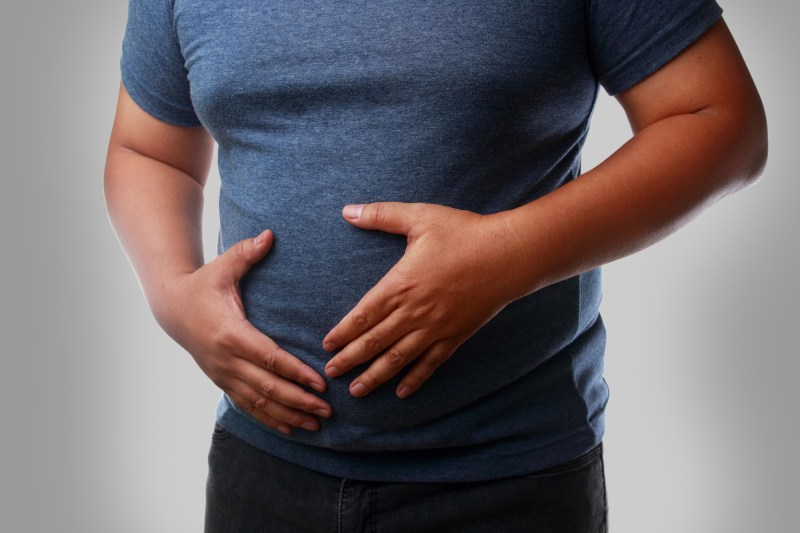
What causes male belly bloat?
According to the Cleveland Clinic, bloating occurs when air or gas gets trapped on your gastrointestinal (GI) tract anywhere along its course from the stomach, through the small intestines, all the way to the colon.
There are different causes of bloating, such as eating foods that cause the production of gas, eating foods that you can’t tolerate (like dairy), overeating, swallowing air from eating too quickly or chewing gum, being constipated, retaining too much water, or having celiac disease or another inflammatory bowel disease.
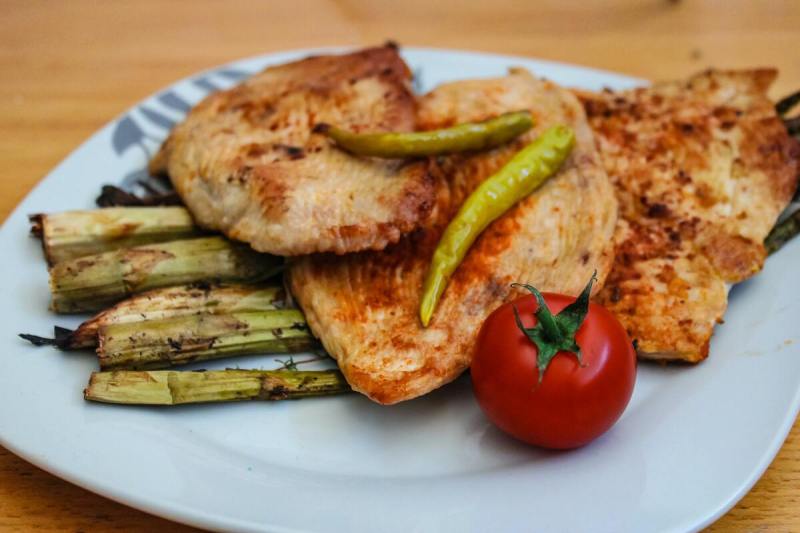
How do men get rid of bloating?
The key to decreasing bloating is to cut back on triggers, increase certain types of fiber (in moderation), and stay hydrated. The best ways to prevent bloating in men is to avoid eating foods that cause gas, such as foods high in fiber, sugar, or sugar alcohol, and foods high in fermentable oligosaccharides, disaccharides, monosaccharides, and polyols (FODMAPs), such as onions, garlic, and cauliflower.
Dairy, carbonated beverages, chewing gum, and cigarettes can all increase bloating, so removing these triggers can help prevent bloating in men. To get rid of bloating, try gentle exercises such as walking, drinking water, and eating foods high in certain nutrients such as potassium and antioxidants.
Best foods to reduce bloating
If you’re uncomfortable and wondering what helps with bloat, try one or more of the following tasty remedies.
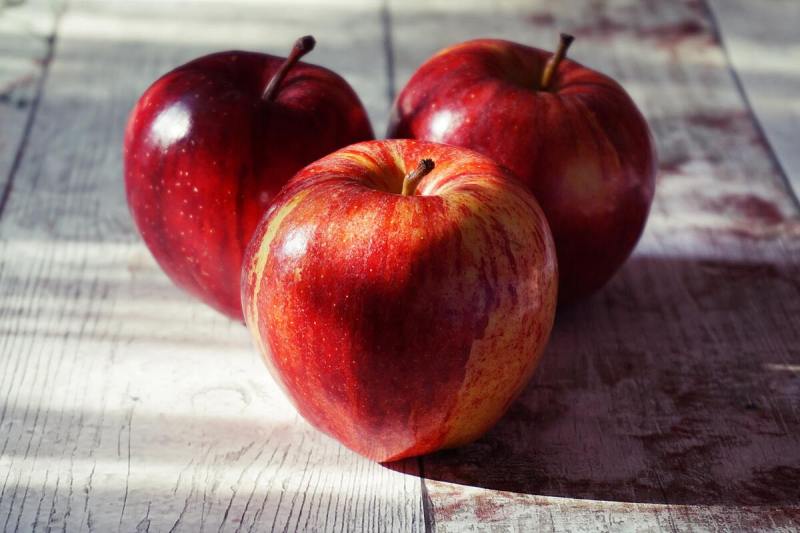
Apples
Apples are high in a prebiotic fiber known as pectin, which can alleviate constipation and help loosen your bowels, which can reduce bloating. Apples also contain potassium, which can help your body regulate fluid levels.
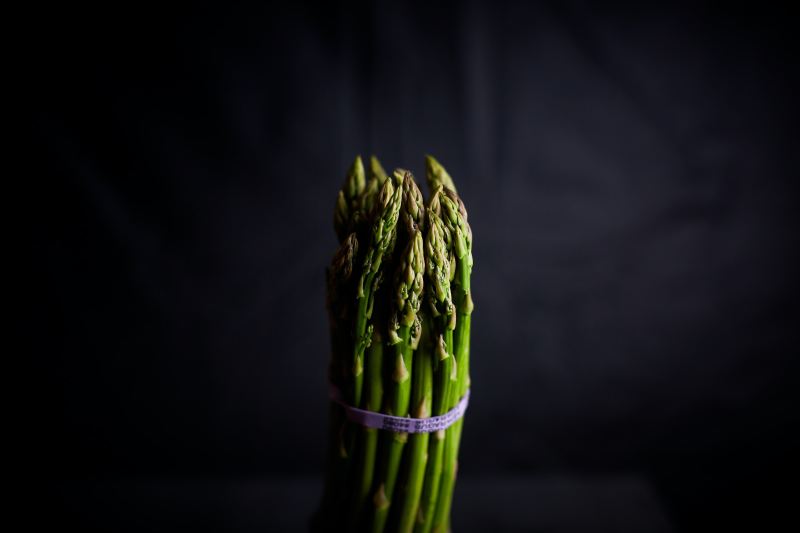
Asparagus
Asparagus is one of the best foods to reduce bloating because it is high in inulin, a type of prebiotic fiber that feeds the beneficial bacteria in your gut. This bacteria can encourage bowel movements by forming a gel-like substance that helps move stool along. That, in turn, can help reduce bloating.
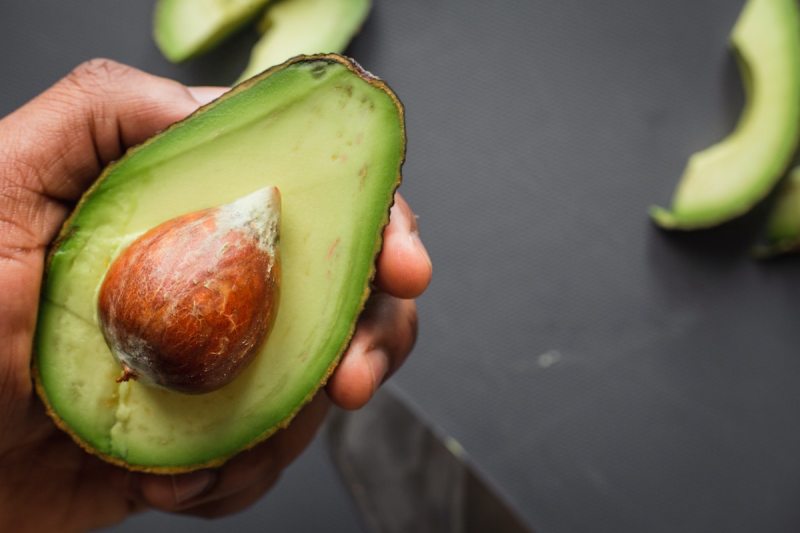
Avocados
Avocados can help decrease bloating because they are one of the best sources of potassium, a mineral that helps remove excess fluid from the body and maintain optimal fluid levels. They are also very high in fiber, which can relieve constipation and promote a large, healthy bowel movement.
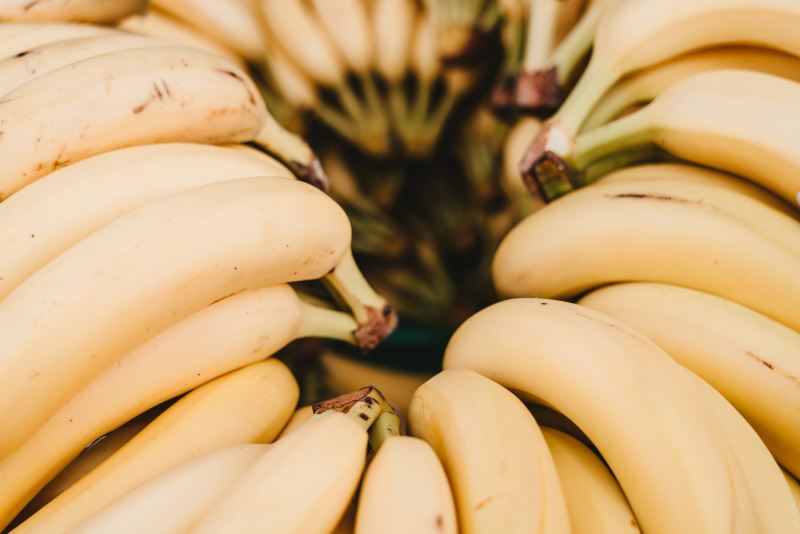
Bananas
Studies show that, like avocados, bananas are one of the best foods to decrease bloating because they are high in potassium and fiber. This one-two punch helps to decrease belly bloat by — you guessed it — promoting bowel movements.
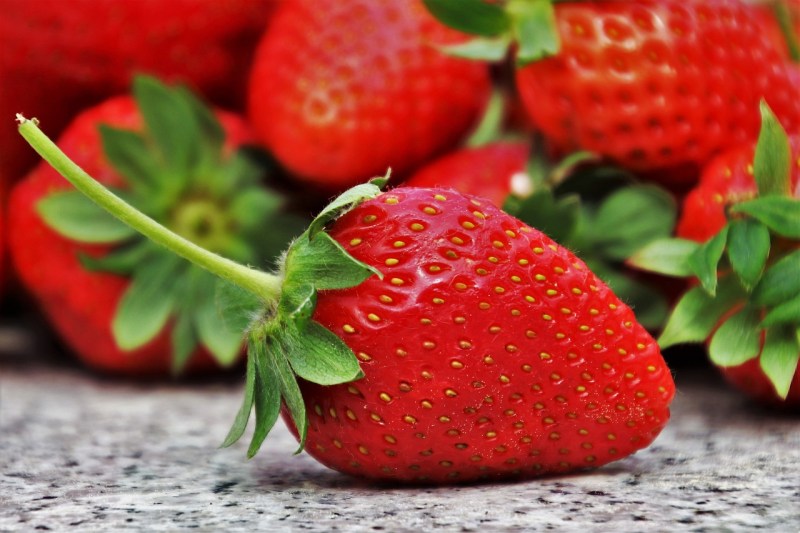
Berries
Raspberries, blueberries, strawberries, and blackberries are high in fiber, water, and antioxidants, so they can reduce inflammation and optimize fluid balance.
Celery and celery root
Celery root acts as a natural diuretic, meaning it helps rid your body of any excess water. Celery is also high in fiber and water, so eating it can stimulate the intestines and help move along any undigested food. It also contains a natural sugar alcohol called mannitol that acts as a stool softener and gentle, natural laxative.
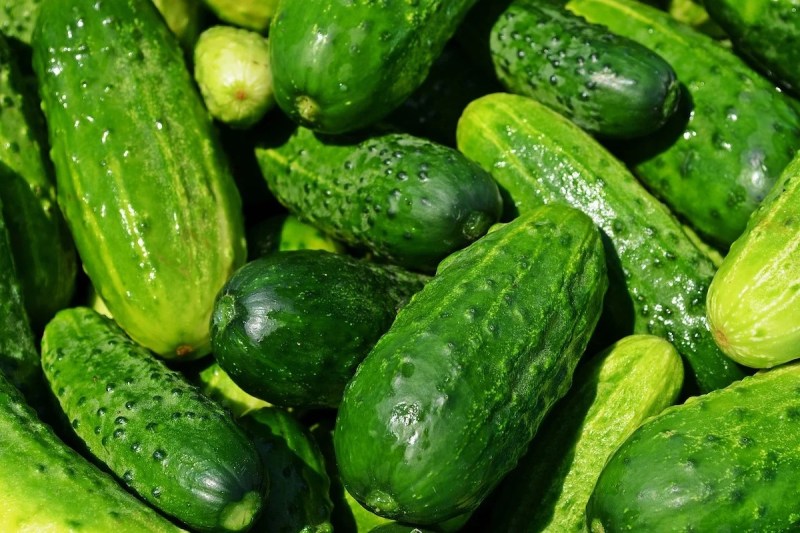
Cucumbers
Bloating can actually be exacerbated by dehydration because the body ends up holding onto excess water in an attempt to conserve the finite resource. Cucumbers are made up of 95% water, so if dehydration is the root cause of your bloating, they can help restore fluid balance and decrease belly bloat.
For this reason, another healthy food to reduce bloating is watermelon. These melons are not only extremely high in water, but they are also a good source of potassium, which, again, helps maintain a healthy balance of fluids.

Green tea
Although not a food, per se, green tea is one of the best natural remedies to decrease bloating. It’s loaded with antioxidants that reduce inflammation along the GI tract that can otherwise contribute to bloating. Plus, the liquid alone can help correct any dehydration that might be contributing to your bloating.
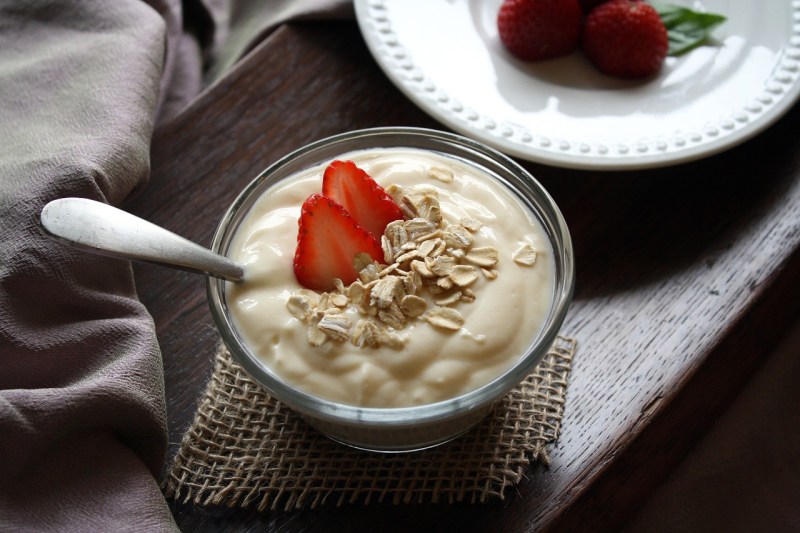
Fermented foods
Fermented foods like yogurt, kefir, sauerkraut, kimchi, miso, tempeh, and pickled vegetables are among the best foods to decrease bloating. Fermented foods contain probiotics, which are the beneficial bacteria that inhabit your gut microbiome and help you digest food and decrease gut and systemic inflammation.
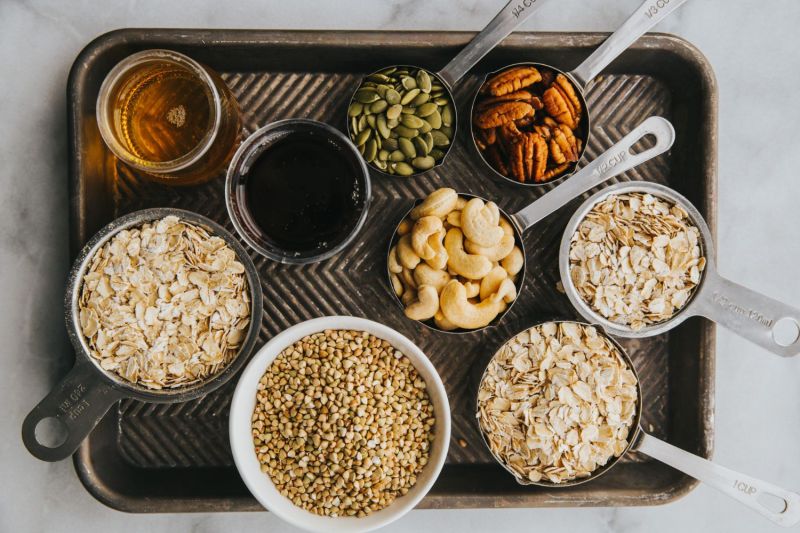
Oats
Oats are high in a prebiotic fiber known as beta-glucan, which decreases inflammation in the digestive tract and stimulates the bowels. An alternative grain that can help reduce bloating is quinoa, which is also rich in fiber, a complete source of protein, and naturally gluten-free.
Pineapple
Pineapple is packed with antioxidants like vitamin C, which can reduce inflammation. It also contains a digestive enzyme called bromelain, which can also reduce inflammation in the gut and support digestion.
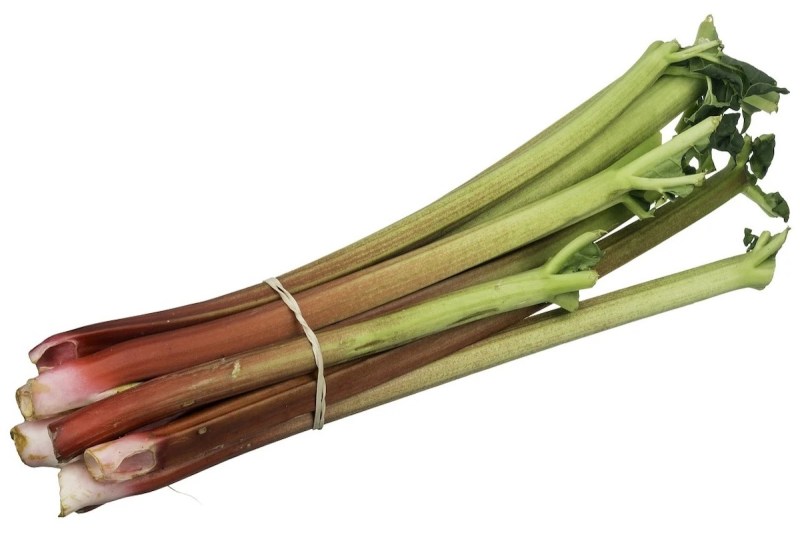
Rhubarb
Although not necessarily a staple in most people’s diets, rhubarb is one of the best foods to decrease bloating because it contains a compound called sennoside, which can stimulate the bowels and alleviate constipation.

Other tips for reducing bloating
Including all the foods mentioned above in your diet is one of the most effective ways to reduce your bloating. However, you may also want to be proactive in taking care of your gut health in other ways. The following are a few tips to help you reduce bloating:
- Chew slowly
- Consume smaller, fewer meals throughout the day rather than larger ones
- Avoid carbonated and sugary beverages
- Have good posture while eating
- Take 10-minute walks after bigger meals
- Drink plenty of water throughout the day



